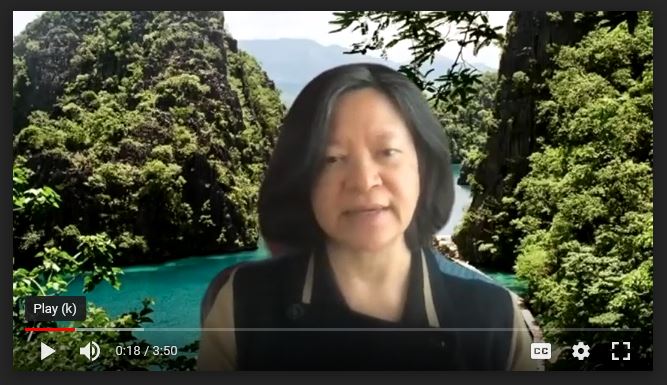To celebrate Asian Pacific American Heritage Month, members of the API ERG are sharing their personal heritage stories.
Ruby Barcklay, who does marketing and communications for the Intellectual Property Office and for Strategic Communications, immigrated to the U.S. when she was 18. She shares how political and economic pressures shaped her parents’ lives and her own experience growing up half-Filipino and half-Chinese.
We invite other API members to contribute to our growing heritage video collection.
Transcript:
My name is Ruby Barcklay. I work in both the Intellectual Property Office and in Strategic Communications.
When people find out I was born in Manila and grew up in Hong Kong, they sometimes ask how I got to the U.S. The quick answer is, I came for college. But there’s more to that story.
My dad grew up in China, in a well-to-do family. When he was away at University, his parents were taken away from their home, never to be seen again. My dad became a newspaper reporter, landed in jail because of what he wrote, escaped to Taiwan, then made his way to Malaysia, and then to Hong Kong, then a British colony.
My mom was born into a farming family in the Philippines, the eldest of 8. She was trained as a pharmacist but couldn’t making a living doing that, so she started importing goods from Hong Kong to sell in the Philippines. That’s how she met my dad. She didn’t speak Cantonese and my dad didn’t speak Tagalog, but they both English and that was enough for romance to blossom.
So my siblings and I grew up, mostly in Hong Kong but in the Philippines for a couple of years. We spoke Cantonese with my dad and Tagalog with my mom, and English with each other. I went to a school run by American nuns, and spoke both Cantonese and English to my friends. My Filipino family thought of me as Chinese and my friends in Hong Kong thought of me as Filipino.
In Hong Kong, we lived in a tall apartment building in a Chinese community in a British colony. At home, at the dinner table, the kids would take turns eating with chopsticks while the rest of us ate with a spoon and fork, because my dad didn’t want to feel like an outsider at his own table. We enjoyed midnight meals at night markets and two-week long Chinese New Year holidays. I had a steady TV diet of kung fu movies along with a lot of American TV shows. Hong Kong was still a British colony, so I learned to sing “God Save the Queen” and waved at the motorcade when the Queen came to visit.
When we were in the Philippines, where I lived for 2 years and spent every major holiday, I stayed with my Filipino grandparents, my lolo and my lola. My lola made me work hard. I remember learning how to wax the floor with the cut end of a half a dried coconut. We watched as a farm hand clambered up a coconut tree, and enjoyed the fresh coconut he cut down for us. I learned how to ask for a blessing from my grandparents, learned some Tagalog, played Filipino games with my cousins (I had 26 first cousins), went to innumerable family events (baptisms, birthdays, weddings, funerals) where there was always lumpia and pancit (Filipino egg rolls and noodles).
As a child, I didn’t know that my dad was already planning on getting out of Hong Kong before the British handed it back to China when the lease was up in 1997. He applied for our family to immigrate to the U.S., a 10-year long progress. We got our green cards just in time for me to college here. At the time, I didn’t think much about how or why my parents applied to immigrate, but I’m glad they did.

